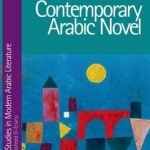Sufism in the Contemporary Arabic Novel
BookThis item doesn’t have any media yet
2014 | Education
Close readings of nine contemporary Arab novelists who use Sufism as a literary strategy. Although Sufi characters - saints, dervishes, wanderers - occur regularly in modern Arabic literature, a select group of novelists seeks to interrogate Sufism as a system of thought and language. In the work of writers like Naguib Mahfouz, Gamal Al-Ghitany, Tahar Ouettar, Ibrahim Al-Koni, Mahmud Al-Mas'adi and Tayeb Salih we see a strong intertextual relationship with the Sufi masters of the past, including Al-Hallaj, Ibn Arabi, Al-Niffari and Al-Suhrawardi. This relationship becomes a means of interrogating the limits of the creative self, individuality, rationality and the manifold possibilities offered by literature, seeking in a dialogue with the mystical heritage a way of preserving a self under siege from the overwhelming forces of oppression and reaction that have characterized the late 20th and early 21st centuries. It looks at works such as Ghitany's Kitab Al-Tajalliyat [The Book of Theophanies], where the title and style imitate Ibn 'Arabi; Ouettar's Al-Waliyy Al-Taher [The Holy Saint], where the protagonist allegorizes Algerian history, and multiple works by Ibrahim Al-Koni.
It traces references and allusions to the mediaeval Sufis, including Junayd, Al-Niffari, Ibn 'Arabi, Rumi and 'Attar.
Related Items:
| Published by | Edinburgh University Press |
| Edition | Unknown |
| ISBN | 9780748695850 |
| Language | N/A |
Images And Data Courtesy Of: Edinburgh University Press.
This content (including text, images, videos and other media) is published and used in accordance
with Fair Use.
